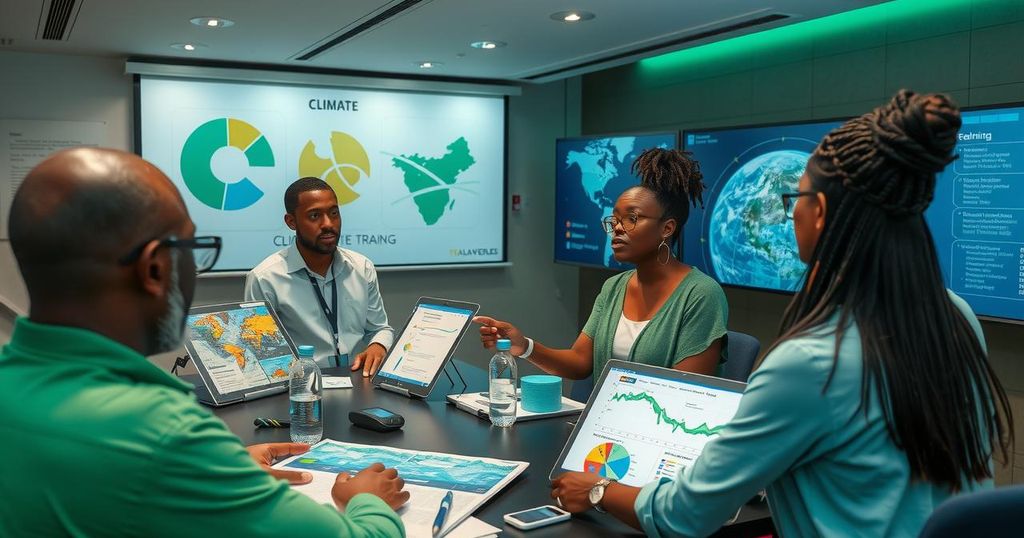A training workshop hosted by UNDRR, GCF, and BOAD in April 2025 empowered Togo’s stakeholders in disaster risk management. Key institutions participated, learning about DRR tools and global frameworks. The workshop included practical demonstrations and concluded with action planning for the GCF co-funded SAP048 project, focusing on community resilience against climatic risks.
In April 2025, the United Nations Office for Disaster Risk Reduction (UNDRR), alongside the Green Climate Fund (GCF) and the West African Development Bank (BOAD), conducted a training workshop in Incheon, South Korea. This event focused on implementing disaster risk reduction (DRR) and climate information systems for involved stakeholders from Togo, supporting the GCF project aimed at enhancing community resilience against climate risks.
The workshop saw participation from key Togo institutions, such as the National Agency for Civil Protection (ANPC) and the Togolese Meteorological Agency (ANAMET). Various international partners shared their expertise in areas including climate adaptation, multi-hazard warning systems, and integrating gender considerations in disaster management. Participants engaged with global frameworks like the Sendai Framework and the Paris Agreement, emphasizing comprehensive planning for the GCF initiative.
Practical tools for DRR planning were introduced during the workshop, including the Sendai Framework Monitor Custom Indicators. Technical partners discussed collaborative methods under the Early Warnings for All Initiative, while the Ministry of the Interior and Safety of South Korea showcased their integrated disaster management systems, emphasizing the effectiveness of technology in early warning and coordination.
On the workshop’s final day, attendees visited the Incheon Metropolitan City Safety Situation Division, observing advanced urban resilience infrastructure including flood sensors and automated detection systems. This visit illustrated how smart governance enhances disaster response capabilities, prompting participants to reflect on how to apply these insights in Togo’s context.
The workshop concluded with discussions on action planning for the SAP048 project, which aims to bolster Togo’s climate resilience. Trainees expressed enthusiasm for utilizing the knowledge gained to enhance national training efforts, reinforcing collaboration among local and international partners to ensure effective early warning systems reach vulnerable communities.
Encouraging sentiments from participants highlighted a renewed commitment to innovate in disaster management and improve coordination among stakeholders, thereby setting a strong foundation for future initiatives.
The collaborative workshop held in Incheon served as a vital step for Togo’s climate resilience efforts by empowering key stakeholders with knowledge and tools necessary for improving disaster risk management. By fostering collaboration among national institutions and international partners, the program aims to ensure that vulnerable communities within Togo are well-prepared for climatic and disaster risks. Continuous action planning and training will facilitate the effective implementation of strategies learned during this workshop, ultimately contributing to safeguarding communities against future challenges.
Original Source: www.preventionweb.net




